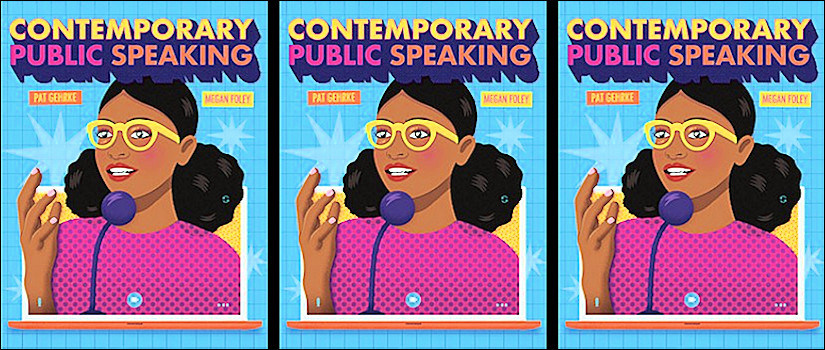Contemporary Public Speaking transforms speech pedagogy for a diverse and digital world
Pat Gerhke, Professor in the Department of English, has collaborated with Megan Foley, director of standpointadvocacy.org, in the creation of a new textbook, Contemporary Public Speaking (Norton 2023). The book serves as “a critical guide for public speaking in a diverse, digital world.” It provides a unique blend of practical skill-strengthening with a recognition that speakers communicate within and across complex communities of belief, interest, and identity. Contemporary Public Speaking recognizes that the 21st-century expansion of public speaking into digital media (beyond televisual, oral broadcast, and in-person performance) necessitates new modes of training in self-presentation.
Gehrke and Foley’s guide shows how this training can and should be inclusive and equitable, respecting the unique contexts and concerns of particular speakers. The authors resist pigeonholing speakers into predetermined categories of class, religion, ethnicity, and/or gender, instead placing them individually at the intersections of a range of social, cultural, and biopolitical impetuses. The book’s grounding in the history of media transformation in American culture allows it to articulate clearly the skills and approaches necessary to effective communication in a range of venues addressing myriad audiences.
Norton has supplied a number of supplements to Gehrke and Foley’s text: exercises, quizzes, tutorials, video examples of speeches, and instruction on plagiarism. Each of the 18 chapters has aids that engage readers directly in the matters at hand. Especially noteworthy are the chapters stressing the importance of “Emotion and Narrative” in speaking (pathos has long been discounted in favor of logos in academic rhetorical study), and “Connecting and Celebrating” (which suggests that effective communication and the sensus communis are mutually reinforcing practices).
Comprehensive in scope and inviting in its presentation, Contemporary Public Speaking opens new avenues for developing learners’ performative skills, deepening their confidence, and attuning their expression to the audiences they address.
